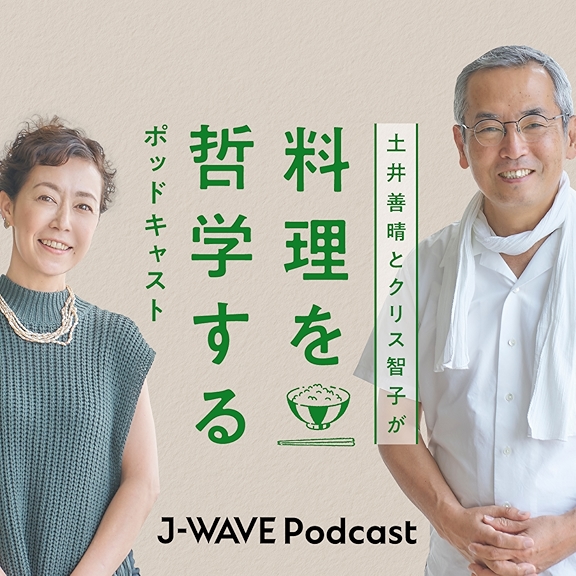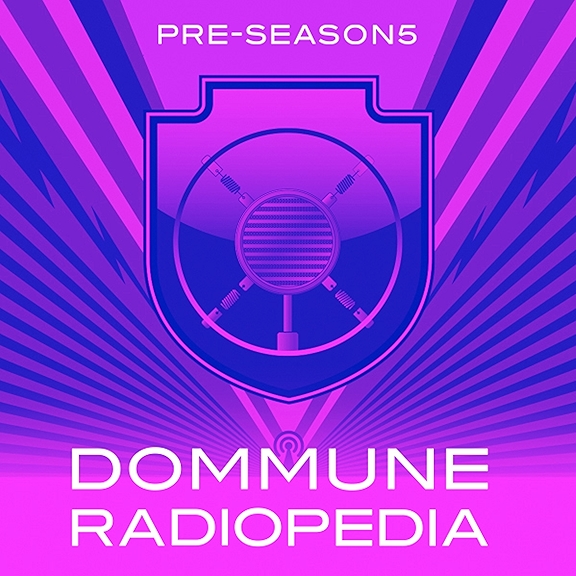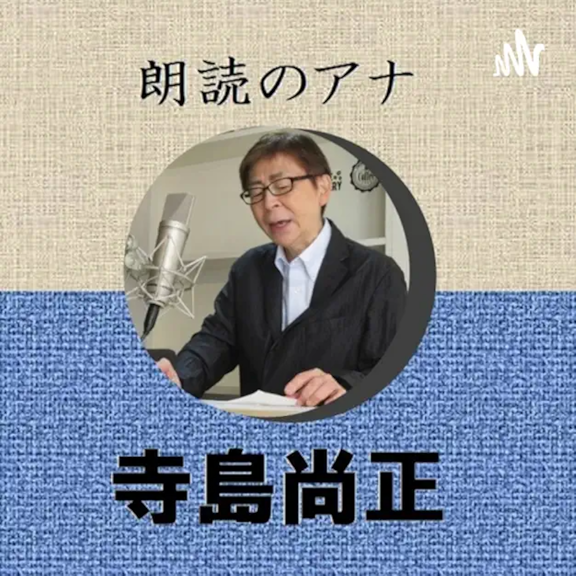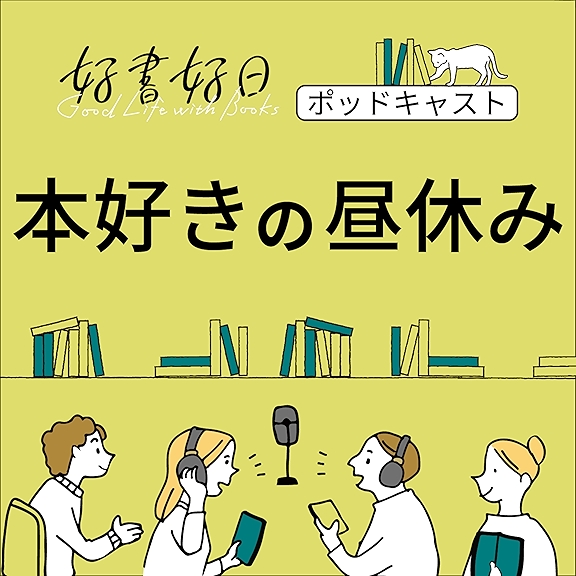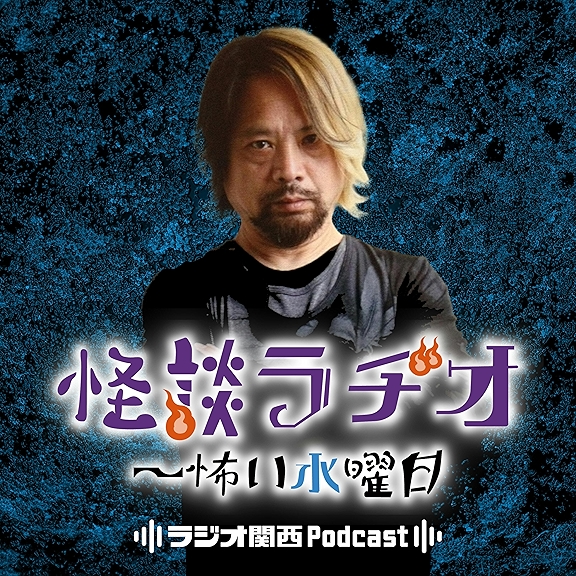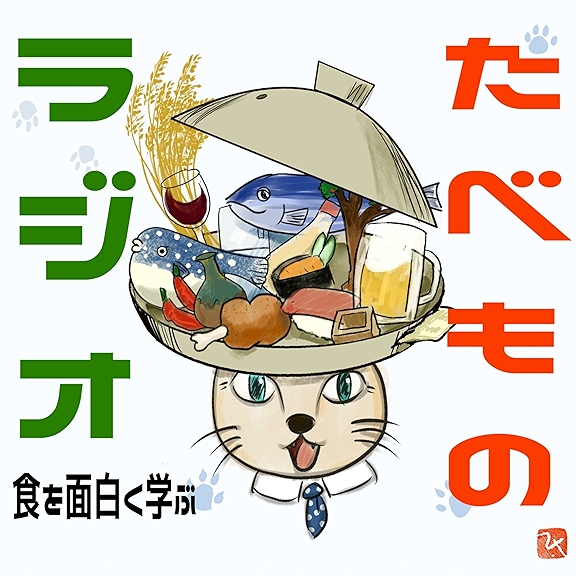
We Make Books is a podcast for writers and publishers, by writers and publishers and we want to hear from our listeners! Hit us up on our social media, linked below, and send us your questions, comments, and concerns for us to address in future episodes.
We hope you enjoy We Make Books!
Twitter: @WMBCast | @KindofKaelyn | @BittyBittyZap
Titles referenced in this episode:
- Ken Follet https://ken-follett.com/books/
- WMB Episode 43 with Antoine Bandele
- The Martian by Andy Weir
- Into Thin Air by Jon Krakauer
- Writing The Other Workshops and Resources
Episode Transcript:
Rekka (00:00): Welcome back to another episode of, we make books, a podcast about writing publishing and everything in between. I am Rekka. I write science fiction and fantasy as RJ Theodore.
Kaelyn (00:11): I'm Kaelyn. I am the acquisitions editor for Parvus Press. And today... So today we're talking about the phrase, "write what you know," and how I dislike it.
Rekka (00:22): Quite a bit. As it turns out.
Kaelyn (00:24): I feel like it can be, without context as Rekka points out in this, a little bit of a cop out. A little bit of a, like, I don't know what to do here. Well, write what you know. Um, as a writing exercise, I think that's fantastic. But as a problem solving technique, I think it's lacking. Now, granted, as we point out, Rekka and I are coming from a genre fiction background, so we don't actually know a ton about aliens yet; we're working on it. So, yeah, I, um, I don't know. I'm not a big fan of the phrase, but, uh, we, you know, get into all different aspects of this. And then we spend a lot of time talking about, okay, well, how do you write what you don't know? And how do you know what you don't know? And if you don't know what you don't know, what do you do about that?
Rekka (01:12): And do— and what if you don't know that you don't know anything, are you allowed to write?
Kaelyn (01:16): Certainly hasn't stopped people.
New Speaker (01:19): That's a, we didn't get into that. So, uh, here comes the music and we'll keep going on this. On the other side.
New Speaker (01:40): I'm running out of cappuccino.
Kaelyn (01:43): Sorry to hear that.
Rekka (01:44): I'm getting very low.
Kaelyn (01:45): So what happens when you've run out of cappuccino?
New Speaker (01:48): I switch to water.
Kaelyn (01:49): But how do you feel?
Rekka (01:52): Um, let me tell you about it... In prose form? Were you trying to make that a segue?
Kaelyn (02:00): Yes, I was.
Rekka (02:00): I was not on the, uh, the wavelength of how that was exactly going to transition.
Kaelyn (02:05): Well, that's because you're running out of cappuccino and you're caffeine deprived and your brain is not working at the, uh, super caffeinated level that you would like it to be.
Rekka (02:13): Gotcha.
Kaelyn (02:14): So if you were writing a character that was in desperate need of coffee...
Rekka (02:18): I would know exactly what to write.
Kaelyn (02:20): Yeah. So today, um, we're talking about the, uh, pervasive and very strange phrase, write what you know. And I say very strange, because everybody seems to have different opinions about what this means. And Rekka and I even have different opinions about what this means.
Rekka (02:38): Well, the people who've said it to me have had different opinions about what it means. Um, sometimes it's somebody saying literally dig into your own life, and that's the only place where your inspiration or subject matter can come from. That kind of precludes the entire genre of science fiction and fantasy.
Kaelyn (03:00): I don't like when people say that, because I think what ends up happening is you have a character or multiple characters that's experiences are limited to your own experiences. And I don't know about you, but I don't want to read a book that's just about me. I'm not interesting enough for that.
Rekka (03:18): Writers already have to struggle to vary their characters enough so that you can identify them by their dialogue alone, for example. don't then tell that writer to rein it in and make the characters more alike by making them all like the author.
Kaelyn (03:34): I think it's a little bit of a trap and a trick to tell people, write what you know.
Rekka (03:40): Well, I know Star Wars. Can I write Star Wars?
Kaelyn (03:43): Absolutely.
Rekka (03:44): Okay, cool. All right. I'm happy with that answer. I think we can end it there.
Kaelyn (03:49): All right. Problem solved. End of episode. Excellent.
Rekka (03:51): Everybody write Star Wars or your favorite thing.
Kaelyn (03:54): Quick clarification. We're obviously talking about fiction here, because if this is a nonfiction book, then you're doing research essentially. Um, or you're telling a narrative story that happened, presumably there's documentation to back up. Um, obviously Rekka and I work in genre fiction. You know, we tend to lean a little more towards the science fiction and fantasy side of things here, but I think this applies to characters and stories across the board. Although we will get a little, as we get, dig a little more into this, we'll get a little into things that are unique to science fiction and fantasy. And in this regard, I think though, that saying write what you know, and limiting yourself to your own experiences— I mean, I don't have that exciting a life ... if I'm limit— If I'm writing a book, and we limit it to my own experiences, it's going to be a lot of pizza. Beer, Mets games, pizza, hockey, a lot of documentaries.
Rekka (04:56): Makeup styling?
Kaelyn (04:58): Yeah. A lot of makeup. So, I mean, do you want to read 80,000 words about that? Cause I don't.
Rekka (05:04): So you don't like the minutiae of write what you know.
Kaelyn (05:09): No.
Rekka (05:12): So allow me to talk about the minutia for a minute. This is the knowledge you have that sinks the reader more deeply into the character at any given time, even though it is what you know about a situation, it's what you know about being deep in that situation as a human being in that space. And even though sometimes we write aliens, we still occasionally need to feel like humans in a space, uh, to connect with our readers who are, in theory, human. So in the case of the cappuccino, because one example is probably as good as another. If you know what it's like to be busy and reach for your cappuccino and realize you drank the whole thing without appreciating it, because you were so distracted by whatever you were focused on. Or, you know the feeling of looking into the bottom of your cup and seeing just that little bit that sinks into the depression formed by the curve of the bottom. And you still have a headache and you still need coffee, except it was a cappuccino and you just spent $5 on your coffee instead of a proper $2. And now you can't go get another one. Um, the feeling of realizing that it's time to switch to water and you didn't really want to drink water because it's cold and you wanted to be cozy and you're in a bad mood and you just wanted your favorite cozy drink. Um, these are all little details that you can apply to a scene that doesn't have to be cappuccino. Uh, you know, if you're relating your cappuccino experience to your science fiction character's favorite beverage that they drink in the morning could be raktajino, could be caff. The characters who can't live without it. Uh, there's also the characters who can't live without their coffee, but only on a chemical level. They actually don't like the flavor and they drink it as fast as they can. These are different kinds of relationships that people can have with something. And so you are writing what you know, and you know it, but it may not be universal. And these are very micro, visceral things that people can generally relate to. Because even if people don't like coffee, they might love tea and they know what it feels like to not have their tea in the morning. Um, or they just know what it's like to not have that piece of their routine, or for the piece of their routine that they hold sacred to be forgotten because something else is going on. So these are all things that can draw your reader in because they create a more relatable experience. And you don't need to have a degree in coffee roasting to understand how this works. You don't need to look, on the internet, what other people say about drinking coffee? Um, if it's not coffee, you know, you don't want to talk about coffee? Talk about your favorite pillow. Talk about your favorite sweater, your slippers. Write about these little things that matter. Um, write about what it's like to be sad, and then have the weather does change and the sky opens up on you, and now you're sad and soaking wet. Like these are all things that readers can relate to, even if they can't relate to your science fiction scenario or your fantasy world. And that's how you write what you know on a micro level.
Kaelyn (09:01): It's useful. You're writing something and the character's exhausted, and they've just run out of cappuccino.
Rekka (09:06): I literally did. Just so you know, I literally just ran out of cappuccino
Kaelyn (09:11): And boy, do you know what that feels like.
Rekka (09:13): I do.
Kaelyn (09:14): That said I'd like to get a little bit more to a macro level. Do you have any other, any other thoughts?
Rekka (09:21): Um, I'm trying not to cry. I'm in that moment where the cappuccino is gone. So continue go to your macro level. Cause I'm, I'm still here in the micro and I'm suffering. So pull me out of it. Take me with you.
Kaelyn (09:33): So on the macro level, this is what I kind of call the research area. Now, people who are like true, write what you know people: if you're not a doctor, you have no business writing, anything that has to do with being a doctor. If you are not an astrophysicist, you should not be writing anything that takes place in space. This is nonsense. There are not a lot of astrophysicists in the world, so we don't get to have all of the astrophysicists writing perfectly correct science fiction. Limiting people to writing only what they know is going to produce a very limited amount of books that could end up being very dry.
Kaelyn (10:14): This kind of then branches into, okay, well, you have to do research on the things that you don't know about. Let's start with research and how much of it you do and where you get it from. And then we're going to move into how you apply this to your writing and the worlds that you're creating and the characters that are living there. The research all depends on what you're researching. You know, if you're writing historical fiction, you better be really well-versed in what was going on in history at that location at that time. You better have some primary sources from people who were there. Uh, you'd better be really clear about, you know, the, um, you know, the location, the political environment of the time, the class of the—you know, let's say it's about a family—their social class, and you'd better know what the important things that you need to identify with them are like, for instance, if you're writing about somebody, um, living in reformation era England, you'd better know what was going on between the Protestants and Catholics. And you'd better say which one this person is.
Rekka (11:23): That's why I write secondary world fantasy.
Kaelyn (11:26): Yes. Exactly. So in some cases like that, you know, like if you're writing fiction that is set, you know, in, in our world at a different time period or, um, a different place, you need to do research to, to find out what that time or that place or that people are like. And you need to do it, not only just to build a compelling character, but to be accurate. Because if this is an area where, if you're setting something, you know, in our quote-unquote reality, you gotta be accurate there otherwise... Well, one, I don't think anyone's really gonna publish it, but two, it's not going to go over well when it's published, it's not something that a lot of readers and reviewers in the community have.
Rekka (12:15): patience for.
Kaelyn (12:16): Yeah, exactly. The example I always use is Ken Follet books. Uh, Ken Follet writes these thousand page tomes of meticulously researched stories. One of his series is about a specific family through various generations. And then the other is about a town in, uh, the high middle ages in England. And my God, the research this guy did into—I think it was like 12th century—English stone masonry techniques. And then, uh, the wool industry open— it, you know, like, uh, how they died and all of this stuff. And you know what, no one can poke holes in that guy's research cause, Oh my God, did he do his research! But he still wrote really compelling characters. And you know what? He didn't write what he knows, because he's not a 12th century peasant from England. He has no context for the series.
Rekka (13:14): At least no one has found his time machine yet.
Kaelyn (13:16): Yes. Yes. So there are certain scenarios in which, you know, you can't write what you know, you just have to do the research.
Rekka (13:26): But there's also, you don't know what you don't know. And sometimes you're just going to get it wrong.
Kaelyn (13:33): Yes, definitely. There are some instances of, "we don't really know, so I'm going to speculate or I'm going to make something up here" and you know, then sometimes, maybe a decade later there's a new archeological discovery and that thing that you made up, wow. That was exactly wrong.
New Speaker (13:48): Yeah. Or exactly right.
New Speaker (13:50): I was going to say, it'd be weirder if it was right. Then, you know, you have the Dan Browns of the world who take some theories and present them as fact and just really run with it. And sure, it makes for compelling reading and an interesting story and everything, but it's not correct.
Rekka (14:08): And not going to hold up to much scrutiny.
Kaelyn (14:10): Yeah.
Rekka (14:10): Look, you're not there because you think you can take a college course in this.
Kaelyn (14:15): Yeah.
Rekka (14:15): I hope.
Kaelyn (14:17): So. You know, historical fiction, obviously you really need to have all your ducks in a row, but we're talking about some different kinds of fiction here. So let's just talk about, you know, maybe not people set in earth.
Rekka (14:29): Okay.
Kaelyn (14:30): I live in New York city. There are a lot of books and movies and stuff set in New York city. One of my favorite things about when I'm watching something set in New York and there's a chase scene through Manhattan and I'm watching the famous locations that they're running by and none of these are close together. This person ran a mile and a half uptown, to turn around, run two miles the opposite direction, and now is somehow in New Jersey.
Kaelyn (14:59): And so if you're, you know, even if you're just writing a, you know, a fiction story that is like, again, I'll use New York as an example, set in New York city and you say, "Oh yes, my, um, character lives all the way out in, um, you know, Flushings Queens in a giant 200 story, you know, whatever building," okay, well, that's not a thing that exists. If they're going to, you know, have certain places and settings and expectations of stuff that they should be doing based on that character, you need to be familiar with and you need to research these things.
Rekka (15:36): Yeah. Your New York character is not going to hop in the car and go to the grocery store.
Kaelyn (15:41): And this is ridiculous, but also like, just get out of map and look up the subway stations. If you're going to make it, like, if you're going to be specific, like, Oh, they got on the 1 Train and went to Queens. No, they'd didn't. The 1 Train doesn't go to Queens. If you're not sure, just say they got on the subway.
Rekka (15:58): They definitely have maps of New York that you can reference.
Kaelyn (16:04): Yes.
Rekka (16:04): I think there's a danger of writing what you looked up, as opposed to writing what you know and understand.
Kaelyn (16:14): If you remember, uh, you know, quite a few episodes back, we talked to Antoine Bandele was a, an episode about creating maps for your book. And I mentioned to him that I live in Astoria, Queens and he said, "Oh my God, I was just there. Uh, I needed to come and do research." And I said, "what do you need to do research on in Astoria?" He said, "I'm writing something set in New York. And one of the characters is Brazilian." And I said, "ah, and there is a small microcosm of Brazilian people in Astoria." And I mean, it's not even, you know, like, uh, Chinatown kind of concentration, but there is a small concentration of, uh, Brazilian shops and stores and restaurants and stuff. And he came out and had a look around because sometimes you just got to get out there and see it.
Rekka (16:58): I mean, like, you will never understand, from a Wikipedia page, what it's like to walk through a place. And things are getting a little bit better with uh, Street View.
Kaelyn (17:09): Uh, Google Maps can be a big help with. All of this is to say, "Oh, so what you're telling me, I should just write about my, you know, town that I grew up in, in Pennsylvania and nothing else?" No, absolutely not. I mean, but you also don't have to travel anywhere, but just be aware of, and try to do as much research on everything as you can, to get a level of authenticity there. Um, in this case, you know, you may not be capable of writing what you know, because you don't know what it's like to be in a particular place.
Rekka (17:41): Yeah. Like don't write about rural Pennsylvania, if you are from Nebraska and you've never been to Pennsylvania and you don't feel like anything up about it.
Kaelyn (17:50): Especially if you live in rural Nebraska, because then you could just write it there.
Rekka (17:55): If you're writing a small town, why not pick the small town that you know, or at least a stand-in that's based on the town you know. Because then you're less likely to get the details wrong. So if you're writing about Grant's Pass, Oregon, but you've never been there and you're from New Jersey, do you honestly know what it feels like to be in Grant's Pass, Oregon, maybe write about your small town in New Jersey or, you know, put a little effort into it until you do know it and then you can write it.
Kaelyn (18:27): Yeah. So, and this is, you know, we're still right now in the realm of things that actually exist in the world. They are, that's a lot easier to decide what you do and do not know. Um, once we get into the realm, Rekka and I operate in, science fiction and fantasy, where you're having to invent things, I think people get the, "well, it doesn't matter what the research is. I'm just going to make up whatever, whatever I want." Yes. However, your world and your characters still need to abide by rules. And unless you want to create an entire new set of rules from everything from biology to have gravity works, then presumably you're going to be carrying over some of our real life applications of this into the book.
Rekka (19:17): What do you say to me, who does write science fiction on planets that, you know, from which the characters have never heard of Earth? Like, do I get to break every rule?
Kaelyn (19:30): No, of course not.
Rekka (19:32): Which rules do I get to break? Please, I'm asking.
Kaelyn (19:37): You get to break whatever rules you want, Rekka. You know that. Just you though, not everyone else. Just you.
Rekka (19:43): Give the qualifier because people are going to be confused.
Kaelyn (19:45): Yeah. The genuine answer is it depends. Because it also depends on how much work you want to be put into the book of explaining why this rule doesn't exist in this world. And genre is going to matter a lot here, hard military SciFi, the expectation there is that we're adhering to the basic tenants of physics as we understand them on earth right now. Fantasy, I think a lot of times, doesn't get too bogged down in this, unless it has a reason to. Everywhere you go, the gravity is the same. The air is presumably breathable, unless it's not for a specific reason. Um, science fiction has a little bit more to make up for there, you know, because we're setting it in like, yeah, it's, it's fake in terms of, you know, in, in the sense that the author has made something up. But you know, what if something's set on Alpha Centauri? Like, we do know that Alpha Centauri is a real place. And while we don't know the exact conditions there or what, you know, for certain is orbiting it, we can make some speculations. Now you can, you know, of course, write in "everything we knew was completely wrong!" So I think the way you've got to sort of approach this and we're going to, we're going to talk large scale and then we're gonna narrow down from here. Okay. What are you keeping? What are you getting rid of?
Kaelyn (21:08): Always start from a position of everything that is true on earth and physics as we understand them on Earth, I can apply across the board here. Your reader is going to start from that understanding unless you tell them otherwise.
Rekka (21:24): Their default is everything they think they know.
Kaelyn (21:26): Yes.
New Speaker (21:26): Which you can't control if they're wrong. But whatever they think they know, that's what they're going to apply as the default understanding. So if you're going to break a rule, redefine it as early as you possibly can to avoid confusion.
Kaelyn (21:43): Yes. So if you're getting to the point where you have to start explaining things that, you know, we're, we're beyond what I think the average reader is going to understand, you've got to decide, "am I going to make something up or am I going to do the research and explain this within the context of what we understand in terms of, you know, physics and biology now?" So all this research I'm talking about, how do you do this? Well, there's no good answer to that. And sometimes the best way is to hope, you know somebody who knows a lot about this stuff.
Rekka (22:20): Sometimes, um, I would say, wait until you learn something that excites you, and use that as the opportunity to dig deeper into that subject and research. And you don't know what you don't know. It's hard to even research something that you're completely unfamiliar with because you don't know the right keywords to even type in.
Kaelyn (22:44): So a really good example of this is Andy Weir's book, The Martian. Andy Weir is very lucky because he is the son of a particle physicist and an electrical engineer. There's all of these physics components that come in. So we've got mechanical and electrical engineering, biology, physics, computer science, all wrapped up in this. Andy Weir is not a, not proficient in every single one of those things. He had to do a lot of research and talk to a lot of people. And he wrote in a scenario that technically doesn't exist. Because we don't know how all of this would really go on Mars, but we can speculate.
Rekka (23:24): Yeah. And he studied orbital mechanics, astronomy, and like the history of space flight in order to make this as well-founded a story as he could.
Kaelyn (23:35): So that's an excellent example of science fiction grounded in reality, even when these things don't actually exist and we're still going, "well, maybe on Mars, this is what it would be like." But it goes to show you what comes with this kind of hard work. Anyway, The Martian is an excellent movie, excellent book. Um, and it is an excellent example of how far good research can get you. Whether, you know, it's The Martian or Harry Potter or Ender's Game or something. All of these things have fantastical elements to them, but there's ways to rationalize them and to make it seem like something that could be feasible because you've established that's what this is. But you're not writing what you know.
Rekka (24:20): Yeah.
Kaelyn (24:21): You're learning.
Rekka (24:21): Yeah. You're learning in order to better write a more convincing scenario.
Kaelyn (24:26): Yes. In some cases the, you know, write what you know is you've got to come up with something and teach it to yourself.
Rekka (24:35): Yeah. And sometimes you have to seek out other people who can tell you what you need to know that you don't know.
Kaelyn (24:39): Yeah. So let's talk about that a little bit. Let's say, um, you're writing something where there's a lot of biology involved for whatever reason. Human, alien, or otherwise. So what are you going to do here? Well, there's so much information on the internet and, you know, first of all, establishing what reputable sources are is very important, but you know, the American College of Physicians, uh, the Mayo Clinic, a lot of, you know, hospitals and research facilities, they have a lot of information online about these things. Um, the other really interesting thing is, uh, YouTube, there is a lot of interesting videos out there about "here's how this functions" and they're made by, you know, doctors, scientists, and reputable people. There's a lot of really good how-to videos out there. There's so much information out there. I think two of the biggest areas that, um, you know, where it's like writing what you don't know and not doing a great job of it, is probably, um, law related things and medical related things.
Rekka (25:50): Yeah. And there are doctors who have written books to help you because they're sick of seeing you do it wrong.
Kaelyn (25:54): Yeah. I remember a panel I went to at the, uh, Nebula Conference about death building. One of the panelists is an emergency room doctor. And you know, they're talking about there's tolerances that the human body is allowed to sustain in writing that in actuality would never happen. One of the examples he gave was like, Sean Bean's character in the first Lord Of The Rings movie, who's got like a thousand arrows sticking out of him, but he's still standing up and swinging a sword.
Rekka (26:21): To be fair. He does die eventually.
Kaelyn (26:24): He does. But as this doctor pointed out, he was like, "yeah, one arrow to the stomach is enough to make most people not be able to stand up."
Rekka (26:32): But also he's Sean Bean. So that's what killed him. Not all those arrows.
Kaelyn (26:37): That's very true. You know? So there's, there's a certain degree we're willing to accept there just because it's know it's stakes, it's intensity, it's, you know, trying to, you know, scare the reader a little bit. Um, if everybody in fantasy books and science fiction, really, any books got, uh, incapacitated the way they should from, you know, a basic—
Rekka (27:02): "The way they should." Sorry, I'm getting punchy. We're super fragile. Who made us so brittle? So, so delicate.
Kaelyn (27:12): Blow to the right, you know, area. Like I always laugh when I'm watching and there are these sword fights and like the people are whack at each other in the legs. And I'm like, "that's a shredded ACL." "That's that meniscus is gone." "That person doesn't have a knee anymore." Anyway, there's a level of tolerance we're allowed to have there, but that said, if somebody is getting cut in half and they survive, they'd better be living in a world where getting cut in half is part of the reproductive cycle or something, you know, they just become two smaller versions of, of that person. Although I will say in the same panel, I was listening to the, the doctors presenting, uh, give us an example of a guy who came into his ER in two different ambulances and survived. So...
Rekka (27:59): On that note!
Kaelyn (28:00): On that note,
Rekka (28:02): What do you know, anyway? What does anybody really know?
Kaelyn (28:06): You know, look, we've, we've all heard the stories of the fantastical and the extraordinary. But to kind of, you know, circle back to our original thoughts here, you know, of writing what you know, and writing what you don't know: research is very important. Um, limiting yourself to writing what you know—unless, you know, I dunno, maybe you've had a really interesting life. Maybe you've had a lot of things happen to you. You've done a lot of stuff. Um, then that's great. But you know, the other end of it is if you haven't, you're, and you want to write an interesting, compelling story, especially if it involves like fairies and leprechauns. I'm kidding. Those are real obviously.
Rekka (28:48): Obviously.
Kaelyn (28:49): You're going to have to do some research and you're going to have to come up with your world rules and parameters. And in the course of the research, identify what you decide you're going to keep versus what you're going to change. And then you have to explain that you're changing it.
Rekka (29:07): I always come back to: the more detail you feel like you have to include to justify the things you're doing, possibly the more research you need to do so that you truly understand it.
Kaelyn (29:20): I'll give you another really good example of this. And this is actually a nonfiction book that falls really interestingly into the write what you know category. John Krakauer's book Into Thin Air. It's about the 1996 Everest disaster. He got, according to his account, talked into coming on this Everest expedition. And it just so happened that while he was there, and this was in the May climbing season, this massive blizzard storm or what have you, struck the people as they were all trying to come back down the mountain and eight people died. This story, it's harrowing, it's terrifying, it's heartbreaking. And it makes you never want to go anywhere near Mount Everest.
Rekka (30:11): I don't even want to read the book.
Kaelyn (30:15): But the reason he went on this expedition was he was going to write an article about it for the magazine he worked for. And now he's writing a book about this terrible disaster that took place. So he's coming from a place where he's actually very knowledgeable about, mountaineering and know, you know, knew all of these people and knew how everything was supposed to go. And now he's got to do a bunch of research and collect information and accounts from different groups and stuff about why what happened happened. And he puts together a really interesting case and story about all different aspects of the, uh, culture surrounding, like, people trying to summit Mount Everest and, you know, the situation of like people who really don't have any business trying to climb Mount Everest and just paying a lot of money to guides to get them up there. There's all of this speculation that, um, one of the things that happened that made this so terrible apart from, you know, a blizzard on Mount Everest, was some kind of a pressure system came through and dropped the oxygen to nothing. So that's a nonfiction book where, you know, this guy was writing what—he set out to write what he knew, and then ended up having to incorporate a whole bunch of stuff he didn't know as well.
Rekka (31:26): That is a very literal write what you know. We've already covered the micro writing, what, you know, in a very personal, um, tangible, you know, physical and mental sensation sort of way, to add realism to a scene. And that can create tension and, and, um, drama, uh, especially in like a, um, you know, third person limited perspective or first person perspective. But, uh, we've also covered researching to learn what you don't know so then you can write it. And we've covered writing what you don't know, because nobody knows it.
Kaelyn (32:15): One thing I'd like to just point out quickly before we wrap up here, there is a difference between writing what you know, writing what you don't know, and writing something that isn't yours to tell.
Rekka (32:28): Yeah. And we didn't go into that this time on purpose because that's a whole topic.
Kaelyn (32:33): You know, saying that there's ways to degree search and gain experience is not the same as saying, "I am a straight white cis person. I am going to write about a gay black trans person, and I will just do a lot of research and that makes it okay." It doesn't. Don't do that. That is not your story to tell.
Rekka (32:52): That is... Writing... Don't write what you think you know. Don't write what you think is hot, and just assuming you know enough about it. And when I say hot, I mean, popular, uh, will attract attention.
Kaelyn (33:10): There's always ways to include diverse characters into your writing. But anytime, you know, you're really going like, "wow, I don't know anything about the type of character, this person, that I'm writing here." That's probably a good point to take a step back and say, "is this something I should be writing?"
Rekka (33:33): If this person is nothing like me?
Kaelyn (33:35): Yes.
Rekka (33:36): In what ways are they not like me? And are those ways that I should not be attempting to explain to other people?
Kaelyn (33:43): You know, like I said, this is a whole other episode. We're not going to, you know, go into this, but it was worth making the statement that it's one thing to research places, locations, history, physics, medical sciences, researching people, outside of historic context, to use as a character is probably a place where you should take a step back and decide whether or not that's something you should be writing.
Rekka (34:12): Um, if you are looking for a resource on knowing when it's okay, you know, cause casual representation in books is good. So look for a series of lectures and of courses called Writing The Other. That's a fantastic resource. They cover all sorts of different marginalized identities. And, um, the courses are paid and they should be because this is someone's time and effort to educate you. Uh, so that would be the best resource I could think of. And if we were ever going to cover that topic, I would be bringing someone on from the Writing The Other courses in order to talk about it. So honestly, I'm just going to refer you to them.
Kaelyn (34:53): For all of this, you know, saying like there's nothing stopping you from doing research and trying to learn and build here. There is a line where research does not matter anymore at that point.
Rekka (35:04): Right. It's just not appropriate.
Kaelyn (35:06): This will not ever be a situation in which you're writing what you know.
Rekka (35:10): Yeah, exactly.
Kaelyn (35:11): So, um, you know, on that note, that's, it, it turned into a little bit, I would call this writing what you know versus researching what you don't.
Rekka (35:19): Right. Versus keeping your hands off what someone else knows.
Kaelyn (35:23): Yeah, exactly. Um, look, you know, I have definitely, um, you know, in the course of my life, like when I was in grad school, I had people, you know, who would say like, "Hey, I, can you tell me about this historic thing? I need it as a point of reference for something," um, a lot of people who in specialized, you know, areas, professions, or educations or stuff are frequently very happy to talk to you about them. You know, this isn't to say that you can just inflict yourself on anyone and say, "tell me all about the human nervous system. I need to know about every ending."
Rekka (35:57): Ideally you have something to offer them. Whether it's money or your own experience in a way that will help them.
Kaelyn (36:04): Yeah. Or just let me take out to dinner. And if I can just bounce a few things off of you, if this is a friend of yours or something like that. Um, when we're able to go out to dinner again, don't take anyone out to dinner, right now.
Rekka (36:14): Yeah. No, that's bad. Be a good person. Keep people protected.
Kaelyn (36:18): Yes. So, you know, don't be afraid to try to reach out to actual human resources that are experts or have more knowledge about these things than you do. It never ceases to amaze me the hobbies that my friends have that mean they know all of this stuff that I can't believe they know a lot about. But yeah. I think, uh, I think that's a good place to end.
Rekka (36:45): Okay, well, if we haven't hit all the marks or you still have questions, you can find us on Twitter and Instagram at @WMBcast, you can find us on Patreon at Patreon.com/WMBcast. Or you can even leave your question in a rating or review on Apple Podcasts. We would love if you would do that over there, because we want more reviews so that more people can find us and ask us more questions. So hopefully that answered some of your questions about this nebulous, strange advice that you hear so often.
Kaelyn (37:17): It's just the worst advice.
Rekka (37:20): I don't think that it's completely without merit. It's just not good without explanation. So, um, with context, it's, uh, a fun thing to consider and something to keep in mind. All right, we're done. I swear. We're done talking about it. We will talk to you in two weeks, hope you all have a lovely time. Stay safe, wear a mask, avoid other humans.





